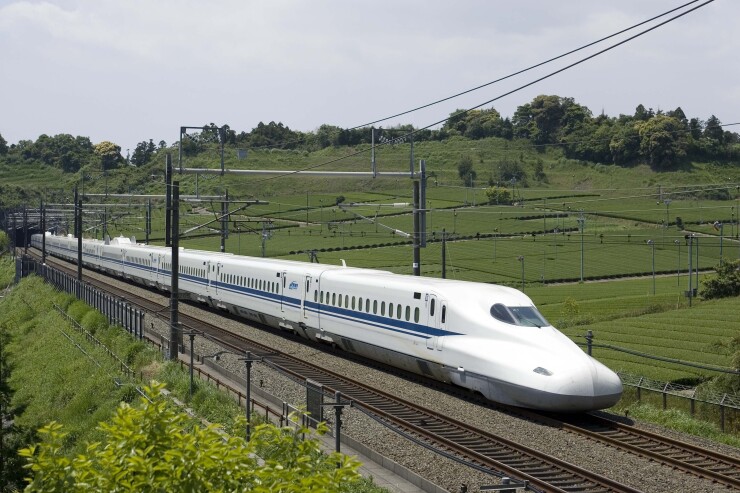A pair of Texas Congressmen are urging the Federal Railroad Administration to reject joint grant applications by Amtrak and railroad company Texas Central to build high-speed rail between Dallas and Houston.
Republicans Rep. Jake Ellzey and Rep. Michael McCaul sent a Sept. 28 letter to the FRA outlining their opposition to the controversial project.
The letter comes after Amtrak and Texas Central announced in August that they’re partnering to revive the bullet train, which has been dogged by obstacles over eminent domain and public funding.
Texas Central
They have applied for three FRA grant programs, including the Federal-State Partnership for Intercity Passenger Rail program, the Consolidated Rail Infrastructure and Safety Improvements program and the Corridor Identification and Development program, all of which saw funding expanded under the Infrastructure Investment and Jobs Act.
The project failed to win money in the latest round of $1.4 billion of CRISI grants, which the FRA announced last week. California’s high-speed project won a $202 million grant.
The FRA is expected to announce in November or December the winners of the federal-state partnership grants and the smaller corridor program.
Amtrak and Texas Central declined to comment.
Several high-speed rail sponsors around the country are vying for the federal funds. California’s High Speed Rail Authority, Brightline West, which is building a rail line between California and Nevada, and the Cascadia line in Pacific Northwest have also put in applications. The projects were highlighted during a September House Transportation & Infrastructure Committee hearing with Transportation Secretary Pete Buttigieg. The transportation chief declined to comment about specific projects, but said the IIJA moves the nation closer to the technology that has proved so popular in other countries.
If approved, the Amtrak-Texas Central grants would “result in taxpayer money being used by a private company to take private land from landowners through eminent domain,” Ellzey and McCaul said, noting the “fierce pushback from rural landowners as well as county and local governments” that own land along the proposed route.
“At its core, this project is intended to take land from American citizens and put it under the control of a Japanese company, which is itself subsidized using money from U.S. taxpayers,” they said.
With speeds up to 205 miles-per-hour using Japanese Shinkansen technology, the train promises a 90-minute trip between the Lone Star State’s two largest cities.
The project has not started construction, according to a March Congressional Research Service report on intercity rail, and completed environmental reviews in 2020. “One persistent obstacle has been the acquisition of land on which to build the new tracks,” the report noted, adding that the Texas Supreme Court ruled in June 2022 that the company did have eminent domain powers. “That same month, the company’s CEO resigned and its board of directors disbanded, leaving the project’s future in doubt.”
When Texas Central first pitched the plan in 2012, the price tag came in at $10 billion, which the company pledged would be entirely privately funded. Estimates have since ballooned to $33 billion.
Several cities support the project, including Dallas, Houston, Fort Worth, and the Harris County Metropolitan Transit Authority.
Meanwhile, it’s unknown whether a government shutdown, if it occurs Sunday, would affect FRA grant announcements. Grant programs funded under the IIJA may continue, but it is unlikely the FRA — or any federal agency — would make splashy announcements during a shutdown, Eno Transportation Center’s Jeff Davis said Friday during an Eno webinar on the impact of a shutdown on transportation.
“This administration will be wanting to point out how bad and painful shutdowns are, so I don’t think they would want to be making new grant announcements during a shutdown anyway, even if they have the authority,” Davis said. “I don’t think you’ll see anything like good news released by any federal agency, just based on pure optics.”
